Depression is a debilitating mental health condition that affects millions worldwide. While traditional treatment methods such as therapy and medication work for many, some individuals struggle to find relief. In recent years, there has been growing interest in alternative treatment options, such as medical cannabis, to help alleviate depression symptoms.
Research on the effectiveness of cannabis in treating depression is still in its infancy, but the potential benefits show promise. Certain strains of marijuana may have a positive impact on mood, motivation, and overall well-being. By understanding the components of cannabis and the different types of strains available, individuals suffering from depression may find an option that works best for easing their symptoms.
Key Takeaways
- Cannabis has shown a potential to alleviate symptoms of depression for some individuals.
- Different strains of marijuana are identified by their THC and CBD content, which can influence their impact on depression.
- Consultation with a medical professional is crucial before using cannabis for depression as a treatment option.
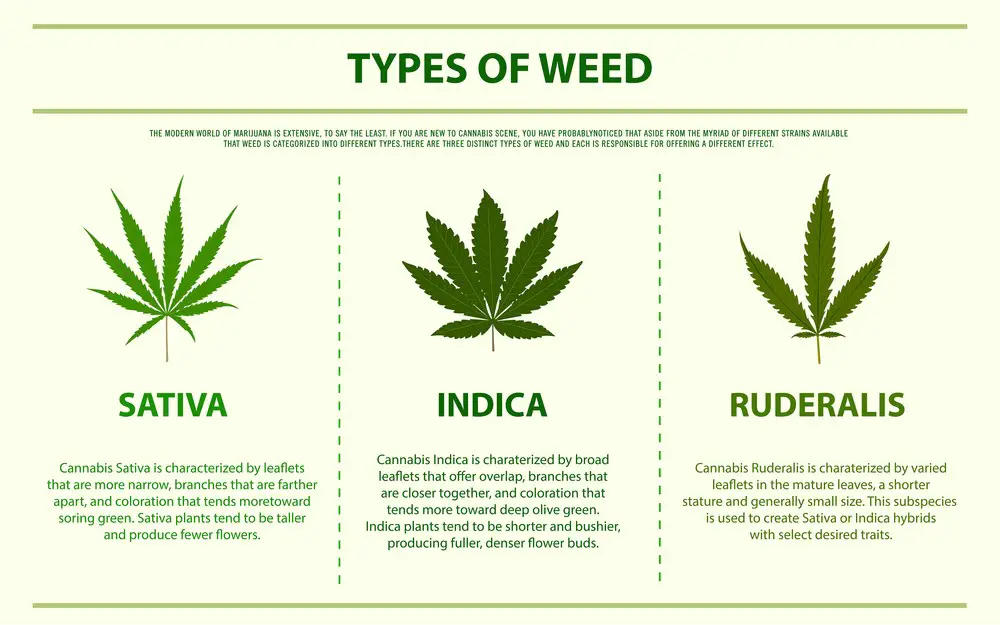
Understanding Depression and Anxiety
Depression and anxiety are common mental health disorders that can severely impact a person’s well-being. They are often referred to as psychiatric disorders and may exhibit many symptoms.
Depression is characterized by persistent sadness, hopelessness, and a lack of interest or pleasure in activities. It may also manifest in physical symptoms such as changes in appetite, sleep disturbances, and fatigue. In severe cases, depression can lead to thoughts of self-harm or suicide.
Anxiety, on the other hand, is marked by excessive worry, fear, or unease. While it is normal to experience anxiety in certain situations, persistent and excessive anxiety can become debilitating. This may lead to restlessness, difficulty concentrating, and panic attacks.
It is important to note that people may experience varying levels of depression and anxiety, and the severity and nature of symptoms can differ significantly from one individual to another. Professional diagnosis and treatment are often necessary to address these mental health challenges effectively.
Some potential approaches to managing depression and anxiety may include:
- Medication: Antidepressants and anti-anxiety drugs can help balance brain chemistry, relieving symptoms and improving daily functioning.
- Therapy: Cognitive-behavioral therapy, talk therapy, and other therapeutic interventions can help people develop healthy coping skills and strategies to overcome their symptoms.
- Lifestyle changes: Incorporating exercise, a balanced diet, and mindfulness techniques can help improve mental health and reduce symptoms of depression and anxiety.
In recent years, there has been growing interest in the potential benefits of certain strains of cannabis in alleviating symptoms of depression and anxiety. However, it is crucial to note that while some individuals may find relief, using cannabis for these purposes should be approached with caution and under the guidance of a healthcare professional.
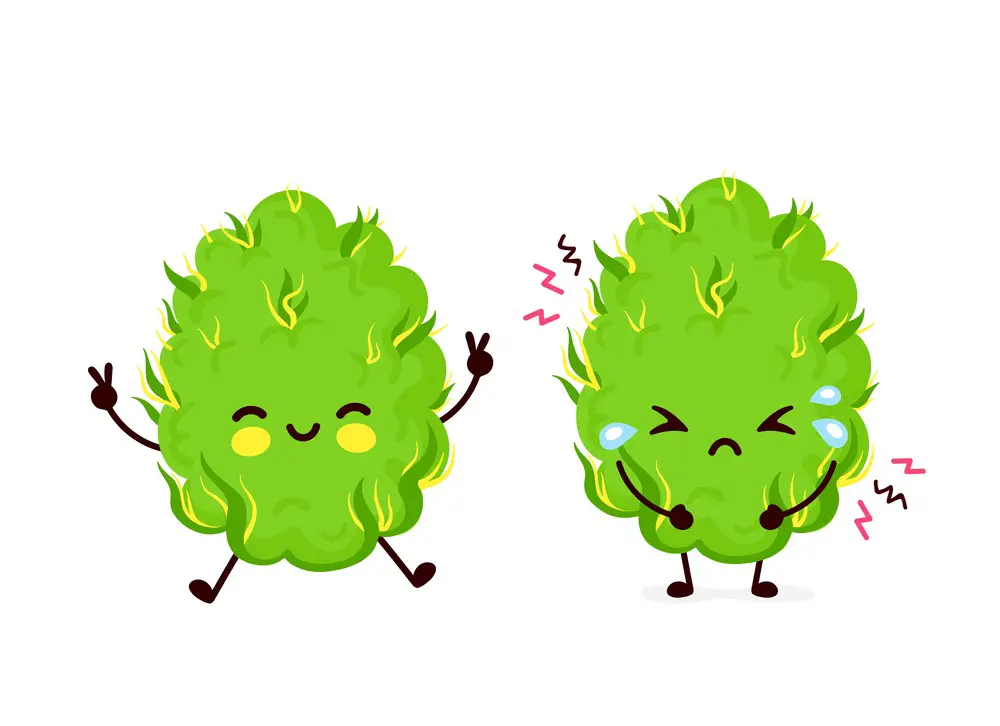
Cannabis and Its Components
Cannabis is a complex plant comprising various chemical compounds that interact with the human body through the endocannabinoid system. Among these components, two major cannabinoids, THC (tetrahydrocannabinol) and CBD (cannabidiol), significantly address depression.
THC is the principal psychoactive component in cannabis, responsible for the plant’s mood-enhancing and euphoric effects. Studies suggest that low to moderate doses of THC may alleviate feelings of depression. However, high doses might exacerbate symptoms. It is important to note that the psychoactive effects of THC vary, and one must exercise caution when using strains with high THC concentrations.
CBD, on the other hand, is a non-psychoactive cannabinoid that holds promising potential for treating depression. Research has shown that it may possess anti-anxiety and antidepressant properties. CBD interacts with the endocannabinoid system indirectly, modulating serotonin levels, which play an essential role in regulating mood. Thus, cannabis strains with high CBD content can alleviate depression without the intoxicating effects of THC.
In addition to cannabinoids, cannabis contains terpenes, aromatic compounds that contribute to the plant’s unique scent and flavor. These compounds naturally occur in plants, fruits, and herbs. Some terpenes, such as limonene and linalool, have been studied for their potential to uplift mood and offer relief from stress, anxiety, and depression.
The endocannabinoid system (ECS) is crucial in mood regulation and emotional responses. This complex cell-signaling system consists of endogenous cannabinoids, receptors, and enzymes and is a bridge between the body and mind. Both THC and CBD interact with the ECS, which helps manage feelings of stress, anxiety, and depression.
In summary, understanding the unique chemical composition and interplay of cannabinoids and terpenes in cannabis strains can help individuals make informed decisions about the best options for addressing depression. Balancing THC and CBD levels while considering the contribution of specific terpenes can provide a tailored solution for those seeking relief from depressive symptoms.
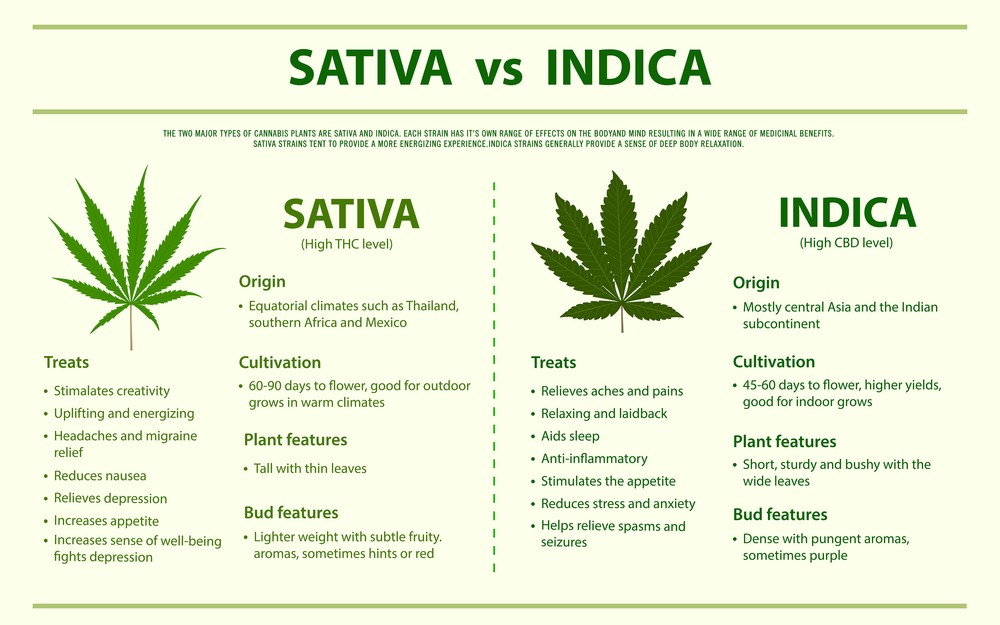
Best Strain Categories for Depression
When selecting the best weed strains for depression, it’s essential to understand the differences between the three primary categories: Indica, Sativa, and Hybrid. Each category offers unique benefits that can help alleviate depression symptoms, and individuals may find varying levels of relief depending on personal preferences and needs.
Indica strains are typically known for their relaxing effects, providing a sense of calm and easing both physical and mental tension. This category can be beneficial for those who experience anxiety or restlessness as symptoms of depression. Some popular Indica strains for depression include:
- Northern Lights
- Granddaddy Purple
- Blueberry Kush
Sativa strains, on the other hand, are usually recognized for their uplifting and energizing properties. These strains often promote creativity, focus, and increased happiness, making them suitable for individuals looking to improve their mood and regain motivation. A few noteworthy Sativa strains for depression are:
- Jack Herer
- Green Crack
- Sour Diesel
Lastly, Hybrid strains combine the benefits of both Indica and Sativa varieties, providing a more balanced experience that can target multiple depression symptoms simultaneously. This category is particularly helpful for those seeking versatile relief and users who may be unsure which category suits them best. Commonly recommended Hybrid strains for depression include:
- Pineapple Express
- AK-47
- OG Kush
It’s crucial to remember that each person’s experience with weed strains may differ, and what works well for one individual may not have the same effects for another. Trial and error are often necessary to find the most suitable strain for one’s needs. Consulting with a knowledgeable professional or dispensary staff can also provide valuable guidance in selecting the ideal strains for depression relief.
Top Sativa Strains for Depression
Jack Herer
Jack Herer, named after the cannabis activist and author, is a popular Sativa strain known for its uplifting and motivating effects. It contains a significant amount of terpinolene, which has been reported to produce anti-anxiety and antidepressant properties. The high pinene content in this strain aids in mental clarity and focus, making it a suitable choice for those struggling with depression. Limonene, another abundant terpene in Jack Herer, also contributes to its mood-enhancing effects.
Sour Diesel
Sour Diesel is a potent sativa strain with a pungent aroma and a reputation for providing fast-acting relief from depression. Its energizing and uplifting effects can be attributed to limonene, which offers mood-enhancement and stress-relieving properties. The high levels of pinene found in Sour Diesel also promote alertness and clear-headedness, helping users to combat negative thoughts and feelings.
Green Crack
Green Crack, a sativa strain known for its invigorating and energetic effects, is an excellent option for those experiencing depression. It has a high terpinolene content, boosting mood and motivation. The strain is also rich in pinene, which can help users maintain focus and combat brain fog often associated with depression. Besides its mood-elevating properties, limonene found in Green Crack fosters a sense of well-being, further contributing to its potential as an effective option for depression.
Best Hybrid Strains for Depression
Girl Scout Cookies (GSC)
Girl Scout Cookies is a popular hybrid strain known for its versatility in treating depression and anxiety. GSC boasts a unique blend of terpenes, including myrcene, linalool, and caryophyllene, which work together to provide a relaxing and soothing effect. The high THC content combined with these terpenes helps to uplift mood and combat depressive thoughts.
This strain’s balanced effects make it suitable for daytime and nighttime use. When used responsibly, GSC can relieve depression without the drowsiness or lethargy some strains may induce.
Pineapple Express
Pineapple Express is another well-regarded hybrid strain for depression. This strain has a sweet and fruity aroma, partly due to its myrcene content, which is known for its calming effects. Pineapple Express also contains caryophyllene, a terpene with anti-inflammatory and mood-enhancing properties.
Users often feel uplifted, focused, and energetic after consuming Pineapple Express. This makes it an excellent choice for those looking to alleviate depression during daytime hours when productivity and concentration are key.
OG Kush
OG Kush is a classic hybrid strain known for relieving depression and anxiety. Its prominent terpenes include myrcene, linalool, and caryophyllene, contributing to the strain’s strong sedative effects.
While OG Kush is often recommended for evening and nighttime use due to its potential to induce relaxation and sleep, it can also be utilized during the day in smaller doses. This strain’s uplifting and euphoric effects can help to combat depressive symptoms, making it a versatile option for those seeking relief from depression.
Effective Indica Strains for Depression
Granddaddy Purple
Granddaddy Purple is a popular indica strain known for its soothing effects on the mind and body. It has a high THC content, which can help to increase serotonin levels, resulting in an uplifted mood. Its sedative properties make it an excellent choice for relieving symptoms of depression and promoting relaxation. This strain’s sweet, fruity scent also adds an element of aromatherapy, which can further enhance its mood-improving effects.
Blackberry Kush
Blackberry Kush is another powerful indica strain often utilized to treat depression. Like Granddaddy Purple, it contains high THC levels, helping to boost serotonin production and reduce negative emotions. Its sedative effects are particularly helpful for those experiencing stress or anxiety.
The distinctive aroma of Blackberry Kush, a mix of sweet berries and earthy tones, contributes to its overall calming qualities. It can be used as an alternative to traditional aromatherapy, with the bonus of helping to alleviate symptoms of depression.
Purple Punch
Purple Punch is an Indica-dominant hybrid that combines the best of both worlds. Its high THC content, similar to the previously mentioned strains, aids in lifting mood by increasing serotonin production. Additionally, the strain’s sedative properties can assist in reducing feelings of anxiety and stress.
This strain’s rich, fruity scent contributes to a pleasant aroma and enhances its therapeutic effects. By incorporating Purple Punch into their daily routine, individuals with depression may find it an effective and enjoyable option for alleviating their symptoms.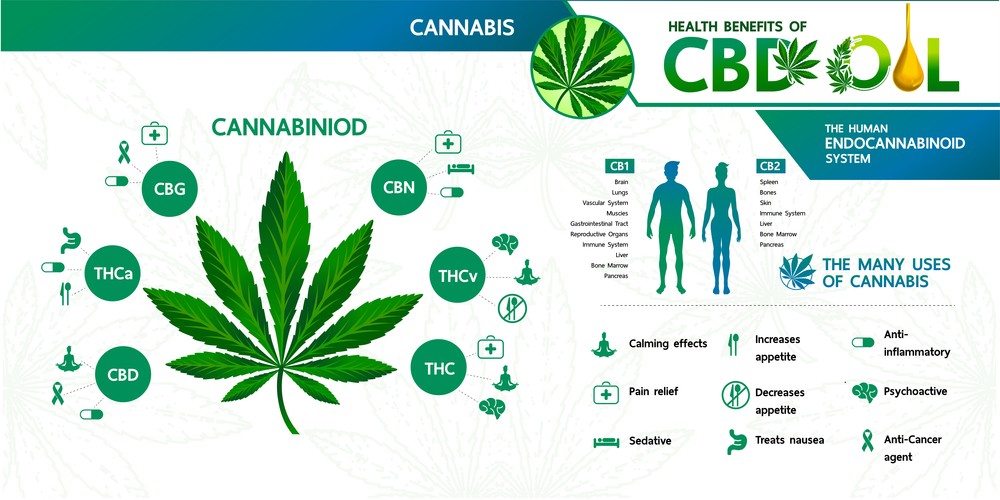
Top CBD Strains for Depression
Depression is a complex and debilitating condition that affects millions of people worldwide. Studies show that CBD (cannabidiol), a non-psychoactive component of cannabis, can have potential anti-anxiety and antidepressant effects. Here are some top CBD strains for depression that may help alleviate symptoms, particularly if combined with other treatments such as therapy and medication.
Harlequin
Harlequin is a popular CBD strain known for its high CBD-to-THC ratio (typically 5:2). It is an ideal choice for those seeking relief from depression with minimal psychoactive side effects. This strain’s unique balance of CBD and THC provides relaxation and a clear-headed feeling for individuals suffering from depression. Additionally, Harlequin is often used for its potential anti-anxiety effects, which can benefit those with PTSD or anxiety disorders.
Cannatonic
Cannatonic is another CBD strain that’s been highly praised for its potential to relieve symptoms of depression. Boasting a nearly 1:1 CBD-to-THC ratio, this strain is known for its mellow and calming properties. Users often report a sense of calm and relaxation in both body and mind, which can help alleviate sadness and despair. Cannatonic may also have anti-anxiety effects for individuals suffering from anxiety-related disorders.
ACDC
ACDC is a high-CBD strain sought after for its potential to combat depression and anxiety. With a CBD-to-THC ratio of 20:1 or higher, users report that ACDC provides relief without any intoxicating effects. The uplifting and clear-headed feeling that comes with this strain can be helpful for those experiencing depressive symptoms. ACDC is also commonly used for its potential to deliver anti-anxiety benefits, making it a great option for those with PTSD or anxiety disorders.
While these CBD strains may offer some relief to those suffering from depression, it is crucial to remember that cannabis should not replace traditional treatments. It is important to consult a healthcare professional and discuss any potential interactions or risks before incorporating CBD or any strain of cannabis into a treatment plan.
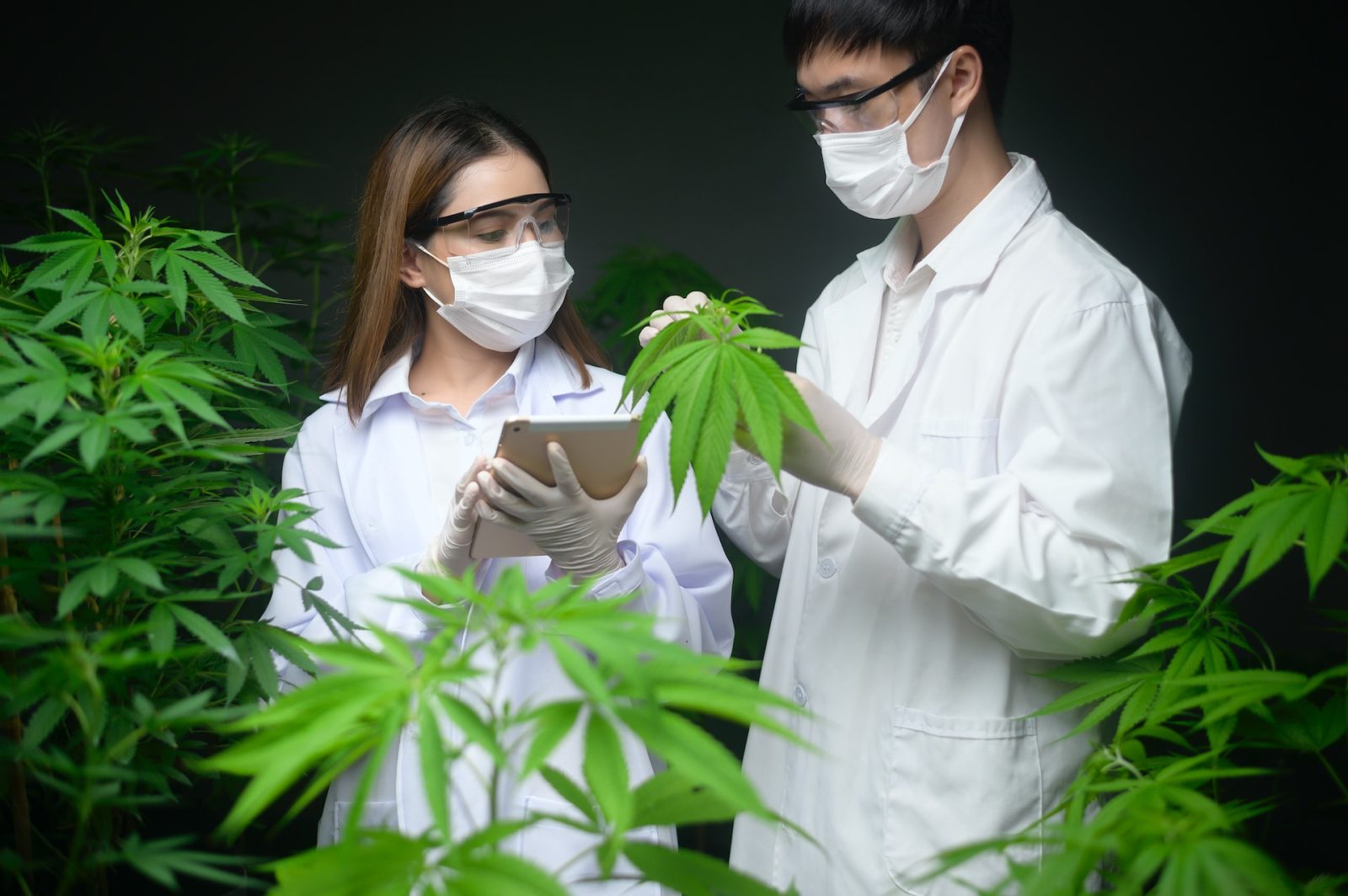
Mood Disorders and Cannabis Therapy
Mood disorders, such as depression, anxiety, and bipolar disorder, are common mental health challenges many individuals face. Traditional treatments typically involve medication, therapy, and lifestyle changes. However, there is growing interest in using medical cannabis as a potential treatment option for mood disorders.
Medical cannabis, also known as medical marijuana, has been increasingly recognized for its potential therapeutic effects in recent years. Some studies suggest that specific cannabis strains may be helpful for individuals dealing with mood disorders. It is important, though, to approach this topic with a clear understanding of the evidence and limitations surrounding cannabis therapy.
Various components of the cannabis plant, such as cannabinoids and terpenes, interact with the body’s endocannabinoid system, which is known to regulate mood and emotions. Some of the most well-known cannabinoids are THC (tetrahydrocannabinol) and CBD (cannabidiol). While THC is responsible for the psychoactive effects associated with marijuana, CBD is non-psychoactive and has been shown to have potential mood-enhancing properties.
Research into the relationship between cannabis and mood disorders has primarily focused on the potential benefits of CBD. Studies have shown that CBD may help alleviate symptoms of anxiety and depression, possibly by influencing serotonin levels in the brain. However, it is essential to acknowledge that more clinical trials are needed to fully understand the effectiveness and safety of cannabis therapy for mood disorders.
When considering cannabis therapy for depression, finding the appropriate strain that offers a balance of THC and CBD is crucial. Strains with a higher CBD-to-THC ratio are generally recommended, as higher CBD levels can help counteract THC’s potentially negative psychoactive effects. Some popular strains known for their potential mood-enhancing properties include:
- Harlequin: A sativa-dominant strain with a 5:2 CBD-to-THC ratio, known for its calming effects.
- Cannatonic: A hybrid strain with an even CBD-to-THC ratio, offering a mild, relaxing effect without feeling overly sedated.
- Jack Herer: A sativa-dominant strain with a relatively low THC content, producing an uplifting and energetic effect.
It is important to consult with a medical professional before self-medicating with cannabis for mood disorders, as everyone’s experiences and reactions may vary. Additionally, it is crucial to consider any potential interactions with existing medications and the legal status of medical cannabis in your region. Medical professionals can help recommend appropriate strains and dosages and provide guidance on the safest consumption methods.
Caution and Medical Consultation
It is crucial for individuals seeking relief from depression with the aid of weed strains to be aware of potential side effects and the importance of consulting a medical professional. Different weed strains might have diverse effects on people, primarily depending on their inherent terpenes, individual tolerance, and stress levels.
Experiencing side effects is not uncommon, including heightened stress or anxiety, insomnia, or even an increased heart rate. To ensure minimal negative effects, it is vital, to begin with a low dosage, then gradually increase it based on one’s reaction and a medical professional’s guidance.
A medical professional can recommend suitable strains and inform patients about strain selection based on terpene profiles. This can greatly contribute to a tailored and effective treatment plan while mitigating potential risks. Moreover, they can assist in monitoring progress and adjusting the chosen strain or dosage as needed.
In conclusion, seeking the help of a medical professional and exercising caution while selecting and using weed strains for depression can go a long way in ensuring a safe and efficient treatment journey. It is advisable to be aware of potential side effects and prioritize health and well-being.
Additional Uses of Marijuana Strains
Marijuana strains have various potential applications beyond helping those with depression. They are known for their potential to alleviate symptoms of several conditions, including chronic pain, arthritis, cancer, headaches, and concentration issues.
Chronic Pain relief is one of the primary reasons people turn to medical marijuana. Many strains, especially those high in CBD, possess anti-inflammatory and analgesic properties. This helps manage pain caused by fibromyalgia, multiple sclerosis, and neuropathy.
Arthritis sufferers may also benefit from marijuana strains that have anti-inflammatory properties. These strains might help reduce joint inflammation and alleviate pain, allowing for increased mobility and improved quality of life.
For Cancer patients, marijuana strains can assist in addressing some of the side effects of chemotherapy, such as nausea, vomiting, and lack of appetite. Moreover, certain strains may help reduce pain and inflammation associated with cancer.
Headaches and migraines are common conditions that can be alleviated by marijuana. Some cannabis strains effectively reduce headache pain, inflammation, and muscle spasms.
Improving Concentration is another area where specific marijuana strains can assist. Strains with a balanced THC ratio may enhance focus and mental energy, potentially benefiting those with ADHD or experiencing occasional difficulties with concentration.
In conclusion, medical marijuana shows promise in offering relief for a variety of health problems. It is essential to consult with a healthcare professional before using cannabis as a treatment option to determine the appropriate strain and dosage for one’s specific medical needs.
Frequently Asked Questions
What strains are most effective for relieving depression?
Several cannabis strains have been reported to help alleviate depression symptoms. Some of the top contenders include:
- Jack Herer: A Sativa-dominant strain known for its uplifting and energizing effects.
- Harlequin: A balanced hybrid with a high CBD content that can relieve relaxation and pain.
- Blue Dream: A popular hybrid strain that balances calming Indica effects and the energizing properties of Sativa strains.
Which cannabis strains are best for pain and fatigue?
Strains with high CBD and Indica-dominant profiles are typically recommended for managing pain and fatigue. Some examples include:
- ACDC: A high-CBD strain that can help with pain relief without causing psychoactive effects.
- Northern Lights: An Indica-dominant strain known for its relaxing and pain-relieving properties.
- Girl Scout Cookies: A popular hybrid strain that balances pain relief with uplifting effects, making it ideal for daytime use.
How do Sativa and Indica strains differ for managing depression?
Sativa and Indica strains may help manage depression in different ways:
- Sativa strains: Known for their uplifting and energizing effects, which can be beneficial for fatigue and low energy often associated with depression.
- Indica strains: Tend to offer relaxation and stress relief, potentially helping ease anxiety and tension accompanying depression.
What are the top strains for postpartum depression?
Postpartum depression can benefit from strains that help balance mood and energy levels. Some popular options include:
- Pineapple Express: A balanced hybrid offering mood elevation and gentle relaxation.
- Sour Diesel: A potent Sativa strain that can provide uplifting effects and help combat fatigue.
- Lemon Kush: A balanced hybrid known for fostering relaxation and enhancing mood.
Which cannabis strains are known for boosting mental clarity?
Some strains can promote focus and mental clarity:
- LAMB’s Bread: A Sativa strain known for its uplifting and mentally-stimulating effects.
- Green Crack: Another Sativa-dominant strain that can help with focus and energy.
- Cinex: A hybrid strain that balances energizing effects with a sense of clear-headedness.
Are there specific strains recommended for anxiety and depression?
When seeking strains to help manage both anxiety and depression, look for balanced hybrids or strains with a high CBD content that influences both mood and relaxation. Some examples are:
- Granddaddy Purple: An Indica-dominant strain that helps with anxiety and depression by offering relaxation and a sense of calm.
- Cannatonic: A CBD-rich strain that provides a balanced mix of relaxation and mood enhancement.
- OG Kush: A well-rounded hybrid that can help ease anxiety and uplift mood.
- The Stress-Free Path to Mastering Conversations: Essential Techniques Unveiled - February 12, 2024
- The Burnout Epidemic: Why We’re All Feeling Overwhelmed and How to Cope - February 9, 2024
- How to Live a Peaceful Life - February 9, 2024
This site contains affiliate links to products. We will receive a commission for purchases made through these links.




